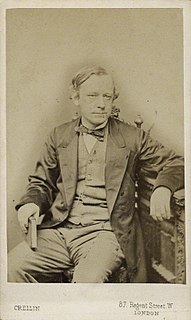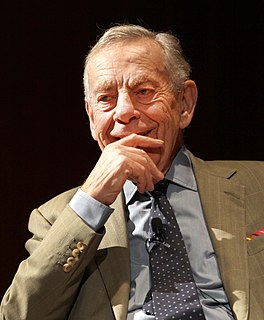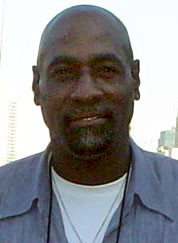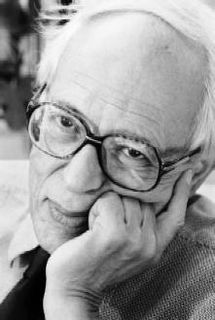Top 1200 Economic History Quotes & Sayings - Page 19
Explore popular Economic History quotes.
Last updated on October 8, 2024.
The issue here is this, that the Government's argument at the present moment is the argument that now the war is over, terrorism is defeated, we have to focus on economic development which in the north and east particular, being the areas where the war was fought, development has to proceed at a pace. That people from those parts of the country are leaving seems to suggest a lack of confidence and certainty in the trajectory of this kind of economic development.
You see, when you're middle class, you have to live with the fact that history will ignore you. You have to live with the fact that history can never champion your causes and that history will never feel sorry for you. It is the price that is paid for day-to-day comfort and silence. And because of this price, all happinesses are sterile; all sadnesses go unpitied.
Some people think it's a law that when productivity goes up, everybody benefits. There is no economic law that says technological progress has to benefit everybody or even most people. It's possible that productivity can go up and the economic pie gets bigger, but the majority of people don't share in that gain.
History, when rightly written, is but a record of providence; and he who would read history rightly, must read it with his eyes constantly fixed on the hand of God. This statement of a nineteenth-century historian sums up the responsibility of the Christian teacher of history, for he who would teach history or any subject matter rightly, must teach it with his eyes constantly fixed on the hand of God.
The discussion of the game of marbles seems to have led us into rather deep waters. But in the eyes of children the history of the game of marbles has quite as much importance as the history of religion or of forms of government. It Is a history, moreover, that is magnificently spontaneous; and it was therefore perhaps not entirely useless to seek to throw light on the child's judgment of moral value by a preliminary study of the social behaviour of children amongst themselves.
We should condemn as unjust a global economic order that leads to ever-increasing economic disparities - provided this effect is foreseeable and provided it is also avoidable through some alternative institutional design that would foreseeably lead to much less poverty and inequality. Those involved in designing or imposing the existing rules are collectively responsible for the resulting excess deprivations and human rights deficits.
The United States is strongly committed to the IPCC process of international cooperation on global climate change. We consider it vital that the community of nations be drawn together in an orderly, disciplined, rational way to review the history of our global environment, to assess the potential for future climate change, and to develop effective programs. The state of the science, the social and economic impacts, and the appropriate strategies all are crucial components to a global resolution. The stakes here are very high; the consequences, very significant.
So far as Feminism seeks to adjust the legal position of woman to that of man, so far as it seeks to offer her legal and economic freedom to develop and act in accordance with her inclinations, desires, and economic circumstances—so far it is nothing more than a branch of the great liberal movement, which advocates peaceful and free evolution.
No civilisation, not even that of ancient Greece, has ever undergone such a continuous and profound process of change as Western Europe has done during the last 900 years. It is impossible to explain this fact in purely economic terms by a materialistic interpretation of history. The principle of change has been a spiritual one and the progress of Western civilisation is intimately related to the dynamic ethos of Western Christianity, which has gradually made Western man conscious of his moral responsibility and his duty to change the world.
Sustainability is an economic state where the demands placed upon the environment by people and commerce can be met without reducing the capacity of the environment to provide for future generations. It can also be expressed in the simple terms of an economic golden rule for the restorative economy: Leave the world better than you found it, take no more than you need, try not to harm life or the environment, make amends if you do.
When people are running up more and more debt for housing, they call that "real wealth." It exposes what's wrong in the mainstream economics and why most of the economics that justifies austerity programs and economic shrinkage is in the textbooks is not scientific. Junk economics denies the role of debt and denies the fact that the economic system we have now is dysfunctional.
It is not surprising that only one medieval state, Venice, long possessed anything clearly identifiavble as a navy in this sense. We shall see that no state in the British Isles attained attained this level of sophistication before the 16th century, and no history of the Royal Navy, in any exact sense of the words, could legitimately begin much before then. This book, which does, is not an institutional history of the Royal Navy, but a history of naval warfare as an aspect of national history. All and any methods of fighting at sea, or using the sea for warlike purposes, are its concern.
Our supplies of natural resources are not finite in any economic sense. Nor does past experience give reason to expect natural resources to become more scarce. Rather, if history is any guide, natural resources will progressively become less costly, hence less scarce, and will constitute a smaller proportion of our expenses in future years.
Now culture being a social product, I firmly believe that any work of art should have a social function to beautify, to glorify, to dignify man... Since any social system is forced to change to another by concrete economic forces, its art changes also to be recharged, reshaped, and revitalized by the new conditions... The making of a genuine artist or writer is not mysterious. It is not
the work of Divine Providence. Social conditions, history, and the people's struggle are the factors behind it.
Can we actually suppose that we are wasting, polluting, and making ugly this beautiful land for the sake of patriotism and the love of God? Perhaps some of us would like to think so, but in fact this destruction is taking place because we have allowed ourselves to believe, and to live, a mated pair of economic lies: that nothing has a value that is not assigned to it by the market; and that the economic life of our communities can safely be handed over to the great corporations.
Taxing Women is a must-have primer for any woman who wants to understand how our current tax system affects her family's economic condition. In plain English, McCaffery explains how the tax code stacks the deck against women and why it's in women's economic interest to lead the next great tax rebellion.
The Church encourages those in power to be truly at the service of the common good of their peoples. She urges financial leaders to take account of ethics and solidarity. And why should they not turn to God to draw inspiration from his designs? In this way, a new political and economic mindset would arise that would help to transform the absolute dichotomy between the economic and social spheres into a healthy symbiosis.
The economic miracle that has been the United States was not produced by socialized enterprises, by government-unon-industry cartels or by centralized economic planning. It was produced by private enterprises in a profit-and-loss system. And losses were at least as important in weeding out failures, as profits in fostering successes. Let government succor failures, and we shall be headed for stagnation and decline.
Why I talked about political correctness: the colonial is now such a major taboo that any achievement of the colonial period, or any generosity implied in colonialism, is again fundamentally neglected or fundamentally not recognised. That's crazy, because history is a series of layers, and you cannot say, "This layer I support and this layer I cancel." History is history and you cannot retrospectively manipulate it.
There's no denying that a collapse in stock prices today would pose serious macroeconomic challenges for the United States. Consumer spending would slow, and the U.S. economy would become less of a magnet for foreign investors. Economic growth, which in any case has recently been at unsustainable levels, would decline somewhat. History proves, however, that a smart central bank can protect the economy and the financial sector from the nastier side effects of a stock market collapse.
My belief in free competitive economic enterprise does not rest solely or even mainly on arguments of economic efficiency, though, heaven knows, these are cogent enough. It rests essentially on the view that the free market is the only safe way of ensuring that productive effort is directed towards supplying what individuals actually want, and in a way which secures the dignity and independence of the worker.
Some years ago John Kenneth Galbraith wrote in an essay on his efforts at writing a history of economics: 'As one approaches the present, one is filled with a sense of hopelessness; in a year and possibly even a month, there is now more economic comment in the supposedly serious literature than survives from the whole of the thousand years commonly denominated as the Middle Ages ... anyone who claims to be familiar with it all is a confessing liar.' I believe that all physicists would subscribe to the same sentiments regarding their own professional literature. I do at any rate.
I think things are imploding on the Democrats, and I actually think this is one of the reasons why the media is so desperate, because despite all the minutia and detail here, in the real world, the things the Democrat Party believes in are failing all over the world, not just here in the United States. The Obama administration was an economic disaster, was an economic failure. Liberalism, socialism around the world is imploding.
I did not know much history when I became a bombardier in the U.S. Air Force in World War II. Only after the War did I see that we, like the Nazis, had committed atrocities... Hiroshima, Nagasaki, Dresden, my own bombing missions. And when I studied history after the War, I learned from reading on my own, not from my university classes, about the history of U.S. expansion and imperialism.



























































